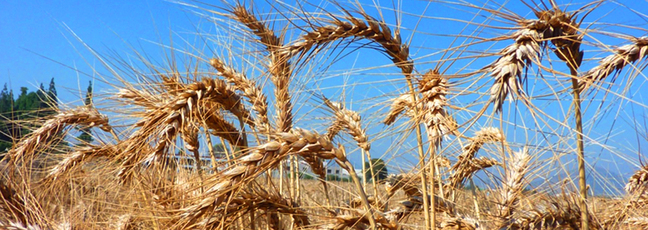A new free “massive” online course explores how we can feed an extra two billion people by 2050.
“Food security is one of the grand challenges facing the world today, with more than a million people already going hungry” said Distinguished Professor Bill Davies, who with colleagues from the Lancaster Environment Centre, is leading the Massive Open Online Course (MOOC) on Global Food Security, starting on 12 May.
“It’s going to get worse, there is going to be a crisis but we are not going to solve it just by producing more food. There are all sorts of other things that have an impact, for example, people in many parts of the world are getting wealthier and eating more meat and so are using up more resources.”
Bill should know, his work on partial root drying, which showed that simulating drought conditions on part of a plant root made the plant use water more efficiently, has been applied as part of China’s agricultural revolution.
“We are currently celebrating the centenary of Dr Norman Borlaug, the father of the first Green Revolution but now we are in need of another green revolution and the MOOC will be looking at some remarkable developments in plant biology, but that can be part of our response to the food security challenge,” explains Professor Davies.
“The whole point of the MOOC is to help people explore some of the interrelationships between the scientific, economic and social considerations that might enable us to feed more people with fewer resources.
“I’ll be focussing on the opportunities for increased food production in different parts of the world and at the contributions that might be being made by plant science and crop management.”
He is joined in presenting the MOOC by three colleagues from across the natural and social sciences at the Lancaster Environment Centre, which carries out a breadth of food related research into e.g. crop science, sustainable food production, pollution effects, integrated pest management, local food, human behavioural studies, social studies more generally and eco innovation.
Plant biologists Dr Jane Taylor and Dr Carly Stevens will be looking at nutrition, food safety and waste, and the impacts of food production on the environment, while social scientist Dr Beccy Whittle is examining food poverty, farm livelihoods, local food and alternative production methods.
The free online course, which is aimed at anyone with a personal or professional interest in these issues, uses specially shot video inserts as well signposting students towards existing articles, videos and other materials.
“We’ve been talking to scientists, farmers and retailers who are all looking for innovative ways to make more and better quality food available to more people,” Bill explains, “as well as people living in food poverty. In addition, we visited Rothamsted Research, the oldest agricultural research centre in the world, talking to scientists who are at the forefront of finding appropriate biological approaches to addressing the challenge,”
MOOCs are relatively new in the UK and this free eight week online course, which begins on 12 May, is only the second MOOC created by Lancaster University. Four hundred students from around the world signed up on the first day of enrollment and the number is rising daily.
“I’m involved because it’s vitally important to attract more young people into the disciplines that make up the food system, farming, retail, academic research, where they can make a huge contribution to the lives of large numbers of people,” Bill said.
Find out more or sign up at FutureLearn, or use the hashtag #FLfoodsecurity to join Twitter conversations about this course.


